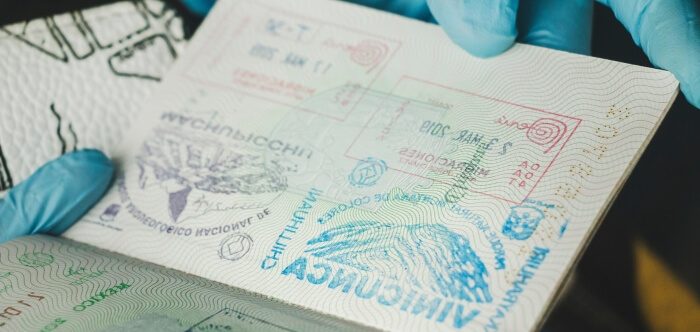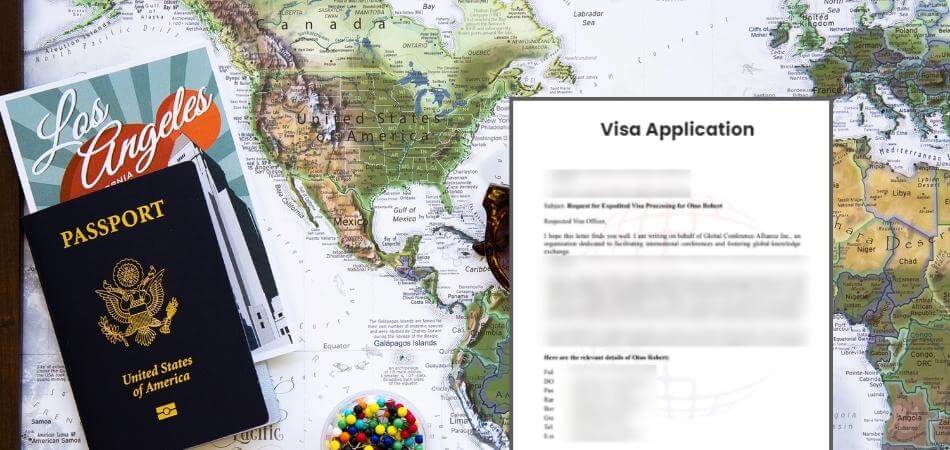International conferences are an important part of professional development in the current globalized world. For many, this would involve obtaining a conference visa. However, For those who have overstayed a previous visa, the question arises: Can you get a conference visa after overstaying?
Yes, you can get a conference visa after overstaying but it’s not simple. The possibility largely depends on the specific circumstances and the immigration policies of the country you wish to visit. Overstaying can lead to complications, including potential penalties or restrictions on future visa applications. Consulting with an immigration expert or contacting the relevant embassy is crucial to understanding your options.
Continue reading the article to learn how to successfully manage this process and increase your chances of approval.
A General Overview of Conference Visa
Conference visas are a gateway for professionals and academics to participate in international events, fostering knowledge exchange and networking. They’re essential for attending conferences, seminars, or symposiums abroad. Understanding their nuances is crucial for successful application and travel.
These visas typically have specific requirements, including proof of event registration and intent to return. Applicants must demonstrate their participation’s purpose and duration, ensuring alignment with the visa’s constraints. The approval process varies by country, reflecting different immigration policies and standards.
Navigating the application process for a conference visa demands attention to detail and adherence to regulations. It’s a structured procedure emphasizing the applicant’s credibility and the event’s legitimacy. Successful applications emphasize comprehensive, accurate information, showcasing clear travel intentions.
How Long Can You Stay With a Conference Visa?
The duration of stay permitted on a conference visa varies depending on the issuing country’s policies and the event’s length. Typically, these visas are aligned with the conference’s schedule, plus a short grace period. This timeframe ensures attendees can participate fully in the event.
For most countries, a conference visa allows a stay ranging from a few days to a couple of weeks. The exact period is often determined by the visa officer, based on the event’s agenda. Extensions beyond this period are generally not permitted without compelling reasons.
Factors that Lead to Conference Visa Refusal
Understanding the reasons behind conference visa refusals is crucial for applicants. These refusals often stem from various factors, each signaling potential concerns to the issuing authorities. Being aware of these can guide applicants in preparing a stronger application.
- Incomplete or Inaccurate Documentation: If application forms are incomplete or contain errors, it raises questions about the applicant’s credibility and attention to detail.
- Lack of Strong Ties to Home Country: The absence of evidence showing strong ties to the home country can imply a risk of overstaying or not returning.
- Insufficient Financial Means: Demonstrating inadequate financial resources to support the stay suggests potential for unlawful employment or inability to sustain oneself.
- Past Immigration Violations: Any history of overstaying, illegal work, or other immigration breaches can lead to suspicion about future compliance with visa terms.
- Unclear Purpose of Visit: Failing to provide a clear and credible purpose for attending the conference can lead to doubts about the trip’s legitimacy.
- Poorly Articulated Travel Plans: Vague or unrealistic travel itineraries can create uncertainty about the applicant’s intentions and the trip’s feasibility.
- Adverse Security or Background Checks: Negative findings in security or background checks can result in refusal due to concerns over safety or compliance.
A conference visa refusal often stems from issues that cast doubt on the applicant’s intent, ability to support themselves, or compliance with immigration rules. Applicants must address these areas thoroughly, providing clear, accurate, and comprehensive information to enhance their chances of approval.
Can You Get a Conference Visa After Overstaying?
Obtaining a conference visa after an overstay can be challenging, but it’s not impossible. The key is understanding how past actions impact future applications. Each case is assessed individually, considering various factors.
Previous Immigration History
Your past immigration history plays a crucial role. A record of overstaying can raise concerns about your intent to comply with visa terms. Authorities scrutinize such cases closely to gauge future behavior risks.
Purpose of Attendance
The purpose and significance of the conference matter. Applicants must convincingly demonstrate their event’s relevance and their commitment to return. Solid proof of event registration and involvement is essential.
Country-Specific Policies
Immigration laws vary significantly by country. Some countries may have more lenient policies towards past overstays, while others are stricter. Researching the specific country’s stance is imperative for a successful application.
Supporting Documentation
Strong supporting documents can tip the balance. These include professional credentials, return tickets, and financial stability proofs. Well-prepared applications have a higher chance of overcoming past overstays.
Strength of Ties to Home Country
Demonstrating solid ties to your home country is vital. Evidence of employment, family, or property can assure authorities of your intent to return. Strong ties reduce the perceived risk of overstaying again.
Length and Circumstances of Previous Overstay
The length and reasons for your previous overstay are also considered. A brief overstay under extenuating circumstances may be viewed more leniently than a prolonged one without justification.
Time Lapsed Since Overstay
Time can be a healing factor; the more time elapsed since the overstay, the better your chances. A clean record post-overstay strengthens your case.
Legal Representation and Advice
Professional guidance can make a difference. Immigration lawyers or consultants familiar with visa issues can provide valuable advice and improve application prospects. They can help you communicate your situation effectively to the authorities.
Consistency in Application Information
Consistency in your application is critical. Discrepancies between your current and past visa applications can raise red flags. Ensure all information is accurate and matches previous records.
Overall Application Quality
The overall quality of your application can significantly influence the decision. A well-prepared, thorough application demonstrates seriousness and responsibility. It should clearly articulate your intent to adhere to visa regulations.
Response to Interview Questions
If an interview is required, your responses can impact the outcome. Honest, clear, and concise answers during the visa interview are essential. They help build trust and demonstrate your commitment to abide by visa terms.
It’s important to understand that an overstay can affect future travel plans. While not always a deal-breaker, mitigating its impact on your visa application requires additional effort. Being proactive and well-prepared can increase your chances of obtaining a conference visa despite past overstays.
How to Get a Conference Visa After Overstaying?
Securing a conference visa after an overstay requires a strategic approach and thorough preparation. Understanding the nuances of the application process and presenting a strong case is key. Your application must address past issues while highlighting your current eligibility.
Comprehensive Documentation
Start by gathering extensive documentation. This includes proof of the conference, your role in it, and evidence of ties to your home country. Ensure these documents are current, official, and relevant to your application.
Present a compelling narrative. Explain the circumstances of the overstay and how your situation has since changed. Clear, honest communication about your past and present situation is crucial.
Legal Consultation
Seeking legal advice is highly beneficial. An immigration lawyer can provide insights specific to your case, helping you navigate complex visa policies. They can assist in preparing a robust application that addresses potential concerns.
Follow their guidance meticulously. Implement their suggestions in your application and during the visa interview. Their expertise can make a significant difference in how your application is perceived.
Addressing the Overstay
Directly address the overstay in your application. Provide a clear, honest explanation of why it occurred, ensuring it’s reasonable and justifiable. Acknowledge the mistake and demonstrate an understanding of its seriousness.
Emphasize changes and learnings. Show how you’ve grown from the experience and why it won’t recur. This approach can help mitigate the negative impact of the overstay on your application.
Strengthening Ties to Home Country
Demonstrate strong ties to your home country. Evidence of a stable job, family commitments, or property ownership can be persuasive. This shows your intention to return after the conference.
Reinforce this with letters of support. These could be from employers, family members, or community leaders, vouching for your character and intention to return.
Securing a conference visa after an overstay presents challenges, but it’s achievable with careful planning and attention to detail. A well-crafted application, supported by solid documentation and legal advice, can significantly improve your chances. Remember, honesty and transparency are key in addressing past issues and demonstrating your commitment to adhere to visa regulations in the future.
Tips to Find the Right Conference Visa in Case You’ve Plan to Overstay
Planning to overstay a visa seriously violates immigration laws and can lead to severe consequences. It’s essential to adhere to the terms of any visa, including a conference visa. The following tips are intended for legal and responsible visa usage, not for overstaying.
- Research the Conference’s Credibility: Ensure the conference you’re attending is reputable and recognized. This adds legitimacy to your visa application.
- Understand Visa Terms Clearly: Familiarize yourself with the specific conditions of the conference visa, including the allowed duration of stay and activities.
- Prepare Comprehensive Documentation: Gather all required documents, including event invitations and proof of accommodation, to support your visa application.
- Show Strong Ties to Home Country: Provide evidence of significant ties to your home country, like employment or family, which indicate your intent to return.
- Demonstrate Financial Stability: Prove that you have sufficient funds to cover your stay without needing unauthorized work.
- Respect Immigration Laws: Always adhere to the laws and regulations of the host country to avoid legal complications and future travel issues.
Finding the proper conference visa requires thorough preparation and a clear understanding of the associated regulations. It’s crucial to respect the terms of the key to maintain a clean immigration record and ensure future travel opportunities. Overstaying or misusing a visa can have serious legal repercussions and should be avoided.
Wrap Up
To sum up the above discussion, the likelihood of securing a conference visa following a past visa overstay largely depends on a range of critical factors. Addressing the concern, “Can you get a conference visa after overstaying?” requires a strategic approach.
Key aspects such as previous immigration infractions, the intent behind attending the conference, and strong connections to one’s homeland play a pivotal role. A prior overstay complicates the process but doesn’t outright preclude the possibility of obtaining a visa.
A meticulously prepared application, backed by factual and transparent information, coupled with professional legal guidance, enhances the prospects of success. It’s essential to approach the application with a deep understanding of the specific immigration policies of the destination country, showcasing a genuine commitment to respect and adhere to their visa regulations.








